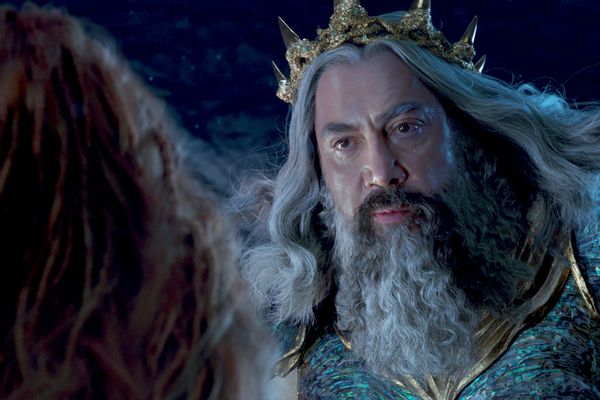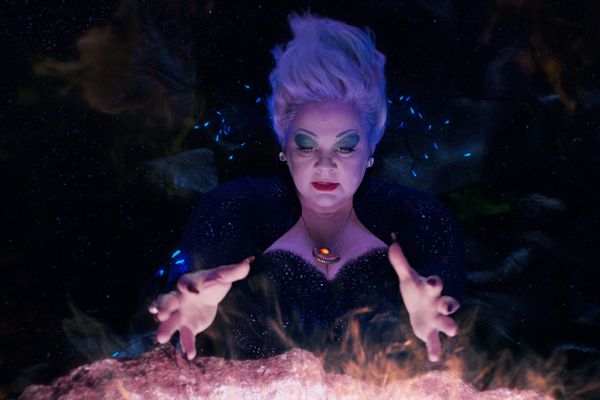It is a truth universally acknowledged that a great character does not need to be a good role model. Stories require conflict, and in order to be compelling, that conflict should come from the flawed people within them. But when the character in question is in a children's story, conversation takes a turn. If we tell stories to children to impart moral lessons, and the protagonist of such a story isn't someone to admire, has the storyteller failed? Disney has been grappling with this question for decades, perhaps its entire existence, because Disney is a brand. They don't just tell stories, but also market the characters in those stories as aspirational to children and admirable to parents with money to spend.
In the years that followed the wildly successful Disney Renaissance, online discourse took a razor-sharp critique to their lineup of protagonists as a series of think pieces separated wheat from chaff, "good role model" from failure. As a result, certain characters have been weighed, measured and found wanting. Perhaps the most chastised has been "The Little Mermaid" protagonist Ariel, called anti-feminist because, of course, as many point out, "She gives up her voice for a man."
Ariel is put in a terrible situation, and like so many young people put in terrible situations, she's led to believe that she has no choice.
These criticisms clearly matter to Disney, as the months leading up to the live-action remake of "The Little Mermaid" filled with news about "woke" changes to lyrics, plot and theme as part of the movie's marketing. And let's be clear: this was marketing, plain and simple. Disney has pitched many of their live-action remakes as responses to popular criticisms of the original films, and "The Little Mermaid" is no exception. When director Rob Marshall was interviewed in Empire Magazine, he both pointed out the achievements of the original film, "A lot of people forget how modern [Ariel] was, especially at that time in 1989," but also echoed this same critique in praising his version of the story, "She doesn't give up her voice for a guy – that's something that was sort of baked into that original."
Now that the update has hit theaters, it's worth looking at the choices it makes alongside the original film and exploring if this most common, and insidious, critique of Ariel was ever relevant in the first place.
 The Little Mermaid, 2023 (Disney)Ariel's overbearing antagonists
The Little Mermaid, 2023 (Disney)Ariel's overbearing antagonists
Disney's original interpretation of "The Little Mermaid," the 1989 film that revived the company's animation department and led to its current success, follows a girl in love with another world. Ariel, the 16-year-old daughter of Mer-King Triton, skips family obligations and risks her health and safety to learn all she can about the world above the ocean. These explorations lead her to spy on a ship, fall in love with the prince onboard and save his life in the ensuing storm. All throughout, she is chastised by her protective father, who fears that if Ariel gets too close to the human world, it will kill her. When he discovers her secret grotto full of human artifacts, he turns violent, destroying her possessions, including the statue of the prince she loves.
This drives Ariel to our villain Ursula, a sea witch who promises the mermaid anything she wants . . . with a price. Once Ariel crosses the threshold into Ursula's lair, the sea witch leads her every step of the way and twists Ariel's desires into something that can be bought and sold. Ursula is the one who offers Ariel legs, Ursula is the one who makes "true love's kiss" the condition for winning the life Ariel wants, and Ursula is the one who sets Ariel three days to complete the task. When the young mermaid hesitates because becoming human will separate her from her family, Ursula dismisses the concerns, and her eels gag Ariel's friends when they caution her against signing the contract.
The 1989 film uses the medium of animation to its fullest extent and communicates entire plot points through, to quote the original Ursula, "body language." For all the discussion of Eric bypassing Ariel's ability to consent during "Kiss the Girl," very few people mention Ursula's imposing presence during "Poor Unfortunate Souls." Ursula towers over Ariel, screams at her, wraps her in tentacles and intimidates her with explosive magical spells that look just like Triton's. Ariel is put in a terrible situation, and like so many young people put in terrible situations, she's led to believe that she has no choice.
By the time we reach "Poor Unfortunate Souls" in the remake, the audience has also been privy to two monologues from Ursula, explaining her motivations and her plans for Ariel. This falls in line with the movie's pattern of lengthy expository dialogue, leaving little storytelling for visual language to accomplish and no room for interpretation.
 The Little Mermaid, 2023 (Disney)
The Little Mermaid, 2023 (Disney)
The new Ariel cannot be allowed to make a mistake, when the whole point of the original is that she might have.
While the live-action film hews close to the original version of "Poor Unfortunate Souls," it also dilutes much of its tension and complexity. Here Ursula directly lures Ariel to her grotto, instead of Ariel seeking out help of her own volition, and when they negotiate, Ursula misleads Ariel by telling her she is giving up her "siren song" – not her "voice." Therefore, it's a surprise to Ariel when she reaches the surface and cannot speak. She's been tricked.
Furthermore, Ariel has also been bewitched into forgetting that she must earn a kiss from Prince Eric in three days' time. This script goes to pains to ensure that this Ariel doesn't "give up her voice for a man," but it robs her key decision of any ambiguity in the process, as if the new Ariel cannot be allowed to make a mistake, when the whole point of the original is that she might have.
The narrow-minded criticisms that informed these changes still have a choke hold on popular culture, and they do far more harm than influencing a mere movie script. It's no accident that intense criticism of the Disney princesses coincided with the rise of what's come to be called girlboss feminism, a kind of feminism in name only that reduces progress to a series of individualistic goals, oppression diluted into obstacles to be "overcome," while offering nothing to combat the systems that keep them in place. It is still with us today, in so many soundbites: Lean in. Be the boss. Get your man. Keep your name. Forget beauty standards. Love yourself. Have it all. Invocation after invocation of what girls "should" do, without any understanding of what's keeping them from these goals. This philosophy leaves so many women behind, and those it doesn't, it makes beholden to the system of oppression itself.
Want a daily wrap-up of all the news and commentary Salon has to offer? Subscribe to our morning newsletter, Crash Course.
The people peddling these ideas see themselves as heroes, but they are far more like Ursula – setting young women near impossible tasks with the promise that they will be easy to accomplish for anyone strong enough . . . or anyone willing to purchase whatever they are selling. Let's not forget that in both versions of "The Little Mermaid" Ursula interferes when Ariel grows too close to success. As the remake takes pains to explain, three days to earn true love's kiss was a trap. Ariel was never meant to succeed. And neither are you.
Girlboss feminism has become a punchline in progressive circles for good reason, yet it still has a hold on how popular stories are told. And that's damaging. You cannot clearly see a person or their accomplishments without also seeing their circumstances. The creative team behind the new "Little Mermaid" kept the smart, nuanced source material close to their heart, and wanted to make a heartfelt successor to the original animated film, but were bogged down by the task of explaining to bad faith critics why the movie they adapted was always great.
We can only hope that this tired reading of Ariel dies away in the wake of this new version of her story, that popular opinion swings again towards seeing fictional merfolk as fully human, and using their stories to see ourselves that way, too.
And perhaps Disney may someday learn their own lesson, with or without the stacked deal with a sea witch. While it's difficult to pity a multimedia conglomerate as large and powerful as Disney, as long as they feel themselves beholden to the likes of Ursula, they are unfortunate indeed.
Read more
about this topic



Shares